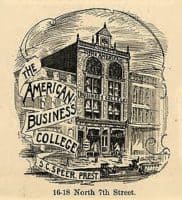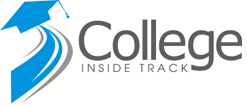Strong Business Programs for B Students: A Few to Consider, with CIT Consultant Suzy Fallon
Strong Business Programs for B Students: A Few to Consider, by CIT Consultant Suzy Fallon

Landis & Alsop., Public domain, via Wikimedia Commons
So, you’re a solid B student (unweighted GPA of 2.7 to 3.3), and you’d like to study business in college. Where should you start? It can be tempting to follow the masses and apply to the growing list of popular state universities with a business school, but we suggest a more measured approach. In a previous post, we discussed the differences between direct and pre-business admissions and recommended understanding the differences before you apply. For most students, regardless of GPA, it’s recommended that you have a few schools where you are confident that you’ll be admitted as a direct admit.
Here are a few strong programs, including a mix of both public and private universities that offer direct admit options to B students.

Campus of Iowa State U. Dirk DBQ, CC BY 2.0 <https://creativecommons.org/licenses/by/2.0>, via Wikimedia Commons
Iowa State University, Ivy College of Business offers 12 majors, 10 minors and 2 certificates in academic areas such as Actuarial Science, Business Analytics, International Business, and Entrepreneurship. All accepted students are admitted as direct admits into the Ivy College of Business. Their dedicated undergraduate Business Career Center is very transparent about “who went where” and publishes a report showing where students across majors are hired and by whom.
A review of this report shows a wide variety of employers, including those in NYC and other major markets. Iowa State’s “Learn by Doing” motto is alive and well at Ivy, with many opportunities for internships and experiential learning. The Princeton Review noted that the university ranked #11 nationally for undergraduate entrepreneurship programs. The Gerdin Business Building was expanded and updated in 2021 and offers state-of-the-art facilities for business majors.
 University of Kansas, KU School of Business offers both direct and pre-business pathways based on GPA and standardized test scores. Their test-optional pathway requires students to have a 3.4+ high school GPA. KU will use either the weighted or unweighted GPA — whichever benefits the student most — after that student’s sixth high school semester. Can you see how this can get tricky?
University of Kansas, KU School of Business offers both direct and pre-business pathways based on GPA and standardized test scores. Their test-optional pathway requires students to have a 3.4+ high school GPA. KU will use either the weighted or unweighted GPA — whichever benefits the student most — after that student’s sixth high school semester. Can you see how this can get tricky?
KU offers majors in Accounting, Finance, Business Analytics, Supply Chain Management, Marketing, Management and more. Their EY Professionalism Program helps students prepare for future opportunities by exposing them to career concepts and offering opportunities for professional development, including the ability to earn additional credentials, certifications, internships and exposure to future employers.

Quinnipiac’s Arnold Bernhard Library and clock tower By User:Wasted Time R, CC BY-SA 3.0, https://commons.wikimedia.org/w/index.php?curid=52379874
Quinnipiac University, School of Business is located in Connecticut, about two hours from both NYC and Boston and 20 minutes from New Haven. Of it’s total of about 6000 undergrads, 1342 or so are enrolled as business majors across 15 programs. They also offer an undeclared business major, and about 20% of incoming freshmen choose this option.
Quinnipiac also offers several interesting dual degree programs and boasts a 99.7% School of Business success rate. Quinnipiac is well known for hands-on learning and offers numerous internships and unique opportunities outside of the classroom. The average GPA for the business school is 3.4, but students with lower GPAs should fare well, especially if they have demonstrated business-related activities and interests in high school.

Bryant Center, Bryant University Public Domain, https://commons.wikimedia.org/w/index.php?curid=4625918
Bryant University, College of Business, is located 12 miles from Providence, RI, and 50 miles from Boston. With about 3000 undergrads, Bryant employs a cross-disciplinary approach to all fields of study. The College of Business students complete courses that combine their business major with a liberal arts minor. More than 40% of students complete double, triple, or even quadruple concentrations. Bryant’s International Business program is consistently ranked in the top 20 and the overall business program in the top 50 by Bloomberg Businessweek.
Bryant organizes its academic offerings into five departments (Accounting, Finance, Information Systems & Analytics, Management, and Marketing) with a number of majors and minors nestled in the academic departments. Bryant students take advantage of experiential learning opportunities such as a Global Supply Chain practicum, a $2.5m student-run investment fund, international business consulting projects, and customized study abroad programs.

Opus College of Business By McGhiever – Own work, CC BY-SA 4.0, https://commons.wikimedia.org/w/index.php?curid=106896879
University of St. Thomas, Opus College of Business is a leader in educating business professionals in Minnesota and surrounding areas. The Opus College of Business is making a name for itself outside of the Midwest, too, and has been recognized as a top undergraduate program by Poets&Quants, an organization that publishes articles and information about business schools and programs.
St. Thomas is home to about 7000 undergrads and offers a wide range of business majors. The first two years are spent taking business core classes and students select their concentration at the end of their sophomore year. The curriculum for each business concentration balances theory with experiential learning and emphasizes ethics, responsibility and community service, which is true to the school’s Jesuit tradition. The Opus College of Business offers challenging academics and opportunities to a wide range of students and is known for its holistic review of student applications.

Farmer School of Business By Chris Staley – Flickr, CC BY 2.0, https://commons.wikimedia.org/w/index.php?curid=67720364
Miami University, Farmer School of Business is located in the picturesque town of Oxford, OH. It is a public university with about 17K undergrads, is about 45 min from Cincinnati, and is one of the original Public Ivies. Poets & Quants list The Farmer School of Business as one of the nation’s top 15 public business schools. The school has also been ranked in the top 10 for both career outcomes and academic experience. Miami University is test optional and uses a weighted GPA, which it recalculates.
If you are a B student who has a 3.6 weighted GPA then this might be a great option. If you have a strong standardized testing score to go along with that weighted GPA, then even better because 66.4% of Farmer School of Business (FSB) admits submitted a test score. “Admission to FSB is competitive yet based on a holistic and comprehensive review process that considers many factors to establish the context of a student’s achievements and demonstrated potential to be successful in its rigorous curriculum.” Miami OH has a robust offering of business majors and minors. One particularly sought after program is their Sports Management major with a Sports Analytics minor. Note that if you are not able to gain direct admission to FSB as a freshman, the pathway is very steep.

Mary Reed Hall and Harper Humanities Garden, U of Denver By CW221 at English Wikipedia, CC BY-SA 3.0, https://commons.wikimedia.org/w/index.php?curid=48250094
Finally, we are including the private University of Denver’s, Daniels College of Business because it has been long regarded as an excellent option for B students. The acceptance rate for business is about 61%, but admissions credentials are on the rise due to increasing applications, recognition by Poets & Quants, and desired location. Daniels College of Business students benefit from well-integrated experiential learning opportunities, strong mentorship, and innovative programming. They offer a direct and two pre-business pathways. The pre-business pathways are attainable, unlike some other schools.
If you are a B student looking for pre-professional business programs, we suggest that you check out some of our other recent articles on strategies for high school students, DECA, and covering your bases. Understanding the differences between direct and pre-business programs, along with being proactive about your grades and activities and open-minded about school options will result in a successful college search and results.
